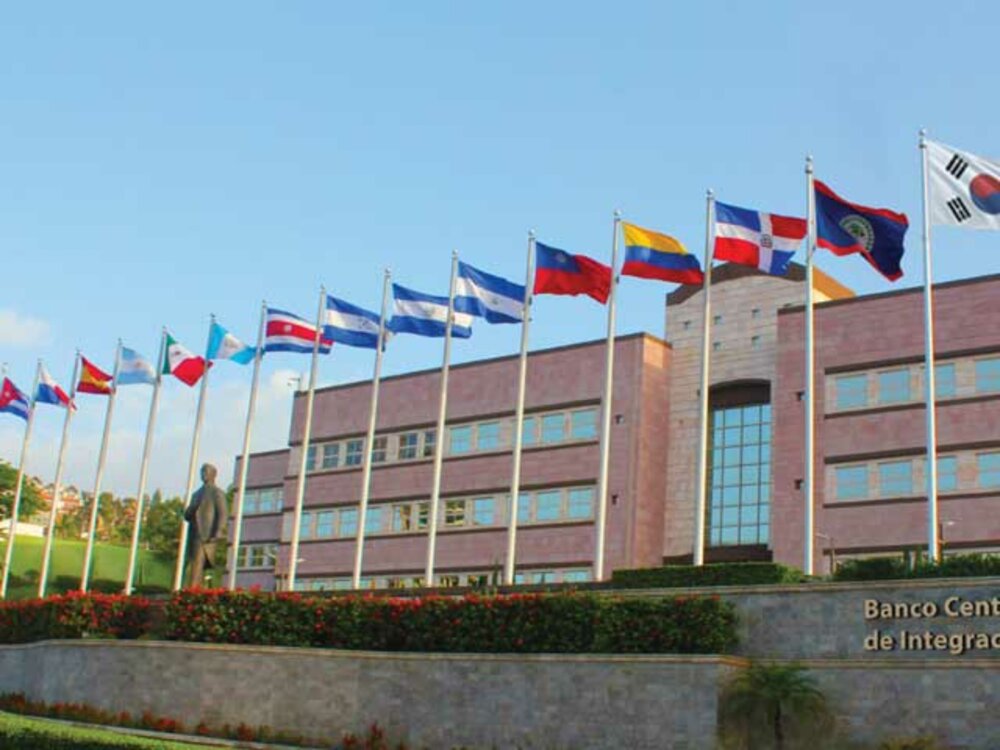CABEI holds talks with economic agents of its member countries in first half of 2022

Through conversations held during the first semester of the year, the Bank plans to strengthen the dynamization and reactivation of its countries' economies.
Tegucigalpa, June 22, 2022.- Promoting the competitiveness of the region's productive and economic sectors in accordance with its institutional mandate to promote the integration and balanced economic and social development of the countries, the Central American Bank for Economic Integration (CABEI) has held meetings with key economic agents from its member countries throughout the first six months of the year.
CABEI has consolidated its position as the region's development benchmark by financing programs and projects, implementing strategies to attract foreign investment, generating quality employment and contributing to economic growth while guaranteeing environmental and social sustainability within the framework of its interventions.
"During 2022, we have obtained positive results by engaging in various conversations with leaders of key economic sectors aimed at unifying efforts to strengthen and energize the economies of the countries in the region, so we are committed to continue developing initiatives that contribute to investment and job creation to counteract the negative impact caused by the COVID-19 pandemic and the recent inflationary processes caused by the increase in the prices of fuel and petroleum derivatives," said Executive President Dr. Dante Mossi.
As part of its institutional work during the first semester of the year, CABEI held meetings with economic agents from Belize, Guatemala, El Salvador, Honduras, Nicaragua, Costa Rica, Panama, the Dominican Republic and Colombia with the sole purpose of presenting the financial mechanisms and services that the bank offers for the execution of national and regional programs and projects that can be accessed and that currently contribute to the reactivation of economic activity.
CABEI has several programs, including, CAMBIO II , Corredor Seco, the Financial Sector Support Facility for financing MSMEs, which in its two years of implementation has protected 75,329 employees by channeling resources and disbursements to financial intermediation institutions for US$495.5 million.
One of the other high-impact initiatives in the region is DINAMICA whose scope at the end of 2021 was the placement of 11,123 loans for US$62.4 million, positively impacting the generation of 21,662 jobs.
This past June, CABEI's Board of Directors approved an interest rate adjustment mechanism that allows it to place resources through its network of Intermediary Financial Institutions (IFIS) at concessional costs, with preferential, accessible and competitive financial conditions, the benefits of which are passed on to end consumers.
These initiatives are intended to benefit the MSME, social housing, gender equity, and climate change sectors so that they can access resources through the high-impact strategic programs that the Bank currently offers.
In line with this, US$800.0 million was approved for the "Temporary Support Program in the Face of Rising Fuel Costs in the Founding and Non-Founding Regional Countries." This program seeks to protect the purchasing power of the Central American population and strengthen the expectations of economic agents, as well as the credibility of monetary policy management; these elements are fundamental for consumption and investment decisions.
CABEI, within the framework of its 2020-2024 Institutional Strategy, in its Competitiveness strategic axis, plans to promote the strengthening of the economic, social and institutional factors that determine the regional capacity to effectively insert itself into world markets beyond the merely commercial sphere.






